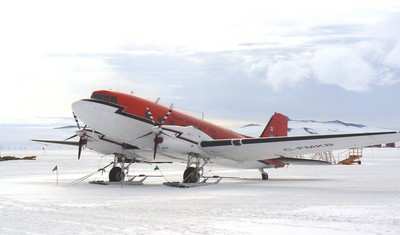Sat, Dec 22, 2007
Advertisement
More News
 ANN's Daily Aero-Linx (04.17.24)
ANN's Daily Aero-Linx (04.17.24)
Aero Linx: Space Medicine Association (SMA) The Space Medicine Association of the Aerospace Medical Association is organized exclusively for charitable, educational, and scientific>[...]
 ANN's Daily Aero-Term (04.17.24): Jamming
ANN's Daily Aero-Term (04.17.24): Jamming
Jamming Denotes emissions that do not mimic Global Navigation Satellite System (GNSS) signals (e.g., GPS and WAAS), but rather interfere with the civil receiver's ability to acquir>[...]
 ANN's Daily Aero-Linx (04.18.24)
ANN's Daily Aero-Linx (04.18.24)
Aero Linx: Warbirds of America The EAA Warbirds of America, a division of the Experimental Aircraft Association in Oshkosh, Wisconsin, is a family of owners, pilots and enthusiasts>[...]
 Aero-News: Quote of the Day (04.18.24)
Aero-News: Quote of the Day (04.18.24)
"From New York to Paris, this life-size replica of the Webb Telescope inspired communities around the world and, in doing so, invited friends and families to explore the cosmos tog>[...]
 ANN's Daily Aero-Term (04.18.24): Hold-In-Lieu Of Procedure Turn
ANN's Daily Aero-Term (04.18.24): Hold-In-Lieu Of Procedure Turn
Hold-In-Lieu Of Procedure Turn A hold-in-lieu of procedure turn shall be established over a final or intermediate fix when an approach can be made from a properly aligned holding p>[...]
blog comments powered by Disqus




